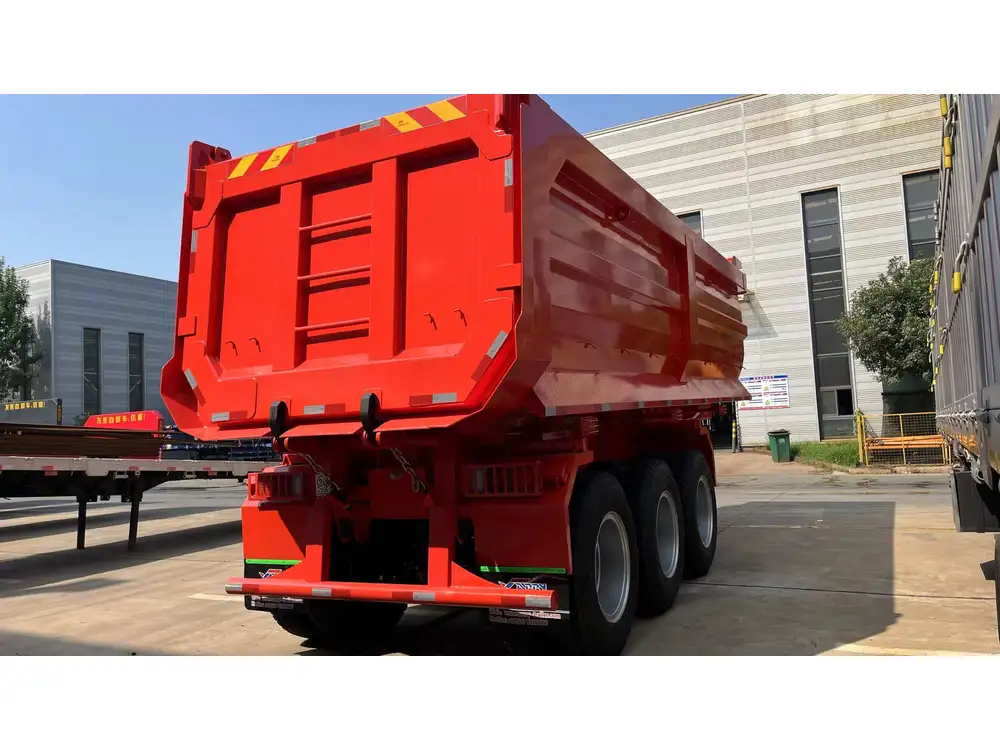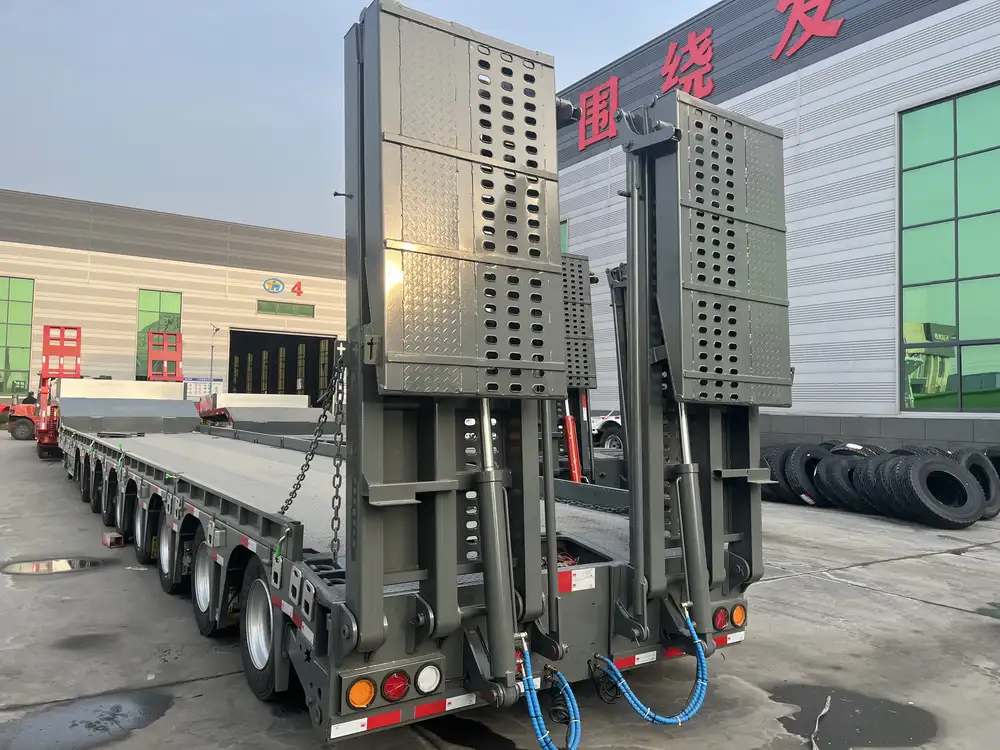In the world of logistics and transportation, the ability to obtain the right equipment affordably can make all the difference. If you’re pondering the question of how much to rent a semi-trailer, you’ve come to the correct place. This article traverses through the various factors affecting the rental costs, types of semi-trailers available, and much more, enabling your decision-making process to be efficient and informed.
Understanding Semi-Trailer Rentals
When businesses require temporary transportation solutions, semi-trailer rentals offer a flexible and economically viable option. Renting can alleviate the financial burden associated with purchasing outright, particularly for businesses in need of short-term operations or project-based logistics.
Factors Influencing Rental Costs
The cost to rent a semi-trailer can vary substantially based on various influential factors. Here’s a breakdown of what will impact your rental agreement:
| Factor | Description |
|---|---|
| Type of Trailer | Different trailers—reefer, flatbed, or dry van—carry distinct cost profiles based on their design and utility. |
| Rental Duration | The length of the rental agreement influences daily rates; longer rentals often lead to reduced rates. |
| Geographical Location | Rental costs can fluctuate significantly depending on the local market and demand. Urban areas often have higher rates. |
| Age and Condition | Newer models tend to attract higher rental fees, while older units may be cheaper but could incur additional maintenance costs. |
| Seasonality | Certain seasons may demand higher rental rates, particularly peaks like the summer months or holiday seasons when logistics are crucial. |
| Delivery and Pickup Fees | Transporting the trailer to and from your location can add to the overall rental cost. |
| Insurance and Damage Waivers | These optional add-ons provide peace of mind but will contribute to the overall cost of the rental agreement. |

Typical Rental Costs
To provide a clearer picture, let’s delve into typical rental costs for different types of semi-trailers. Here’s a simplified cost analysis that highlights average prices:
| Trailer Type | Daily Rate | Weekly Rate | Monthly Rate |
|---|---|---|---|
| Dry Van | $100 – $150 | $600 – $900 | $1,800 – $2,500 |
| Flatbed | $120 – $160 | $700 – $1,000 | $2,200 – $3,000 |
| Reefer | $150 – $200 | $900 – $1,200 | $2,800 – $3,800 |
Rates may vary based on the aforementioned influencing factors, including location and specific rental agreements.
Types of Semi-Trailers Available for Rent
Understanding the various types of semi-trailers could affect your choice, depending on your specific business needs. Below are the prevalent types of semi-trailers available for rent:
1. Dry Vans
Ideal for transporting non-perishable goods, dry vans are enclosed trailers providing protection against weather conditions. Their versatility makes them a popular choice among businesses.

2. Flatbed Trailers
Flatbeds are used for oversized items or loads that require easy loading and unloading from the top and sides. Industries such as construction and manufacturing frequently utilize this type.
3. Refrigerated Trailers (Reefer Trailers)
If you deal with perishable goods like food items, reefer trailers maintain specific temperature levels to ensure freshness over extended transportation times.
4. Tank Trailers
Designed to transport liquids such as fuels or chemicals, tank trailers have specialized features to secure and stabilize loads.

5. Lowboy Trailers
Used primarily for transporting heavy, oversized equipment, lowboy trailers provide a lower deck height for easier loading.
When is Renting a Semi-Trailer Ideal?
Determining whether you should rent or purchase a semi-trailer can significantly impact your business operations. Here are scenarios where renting makes practical sense:
- Short-Term Projects: If your business involves temporary contracts or seasonal demand spikes, renting can avoid unnecessary capital expenditures.
- Market Testing: New businesses that are still defining their market needs can benefit from rental flexibility. While testing logistics strategies, you can gauge the right equipment before committing to a purchase.
- Specialized Requirements: Should a specialized trailer be necessary for a unique project, renting can provide immediate access without engaging in costly long-term contracts.
- Maintenance-Free Use: Rental agreements typically cover maintenance, ensuring that you receive equipment that’s roadworthy without the hassle of upkeep.
Tips for Selecting the Right Rental Provider
Choosing the right semi-trailer rental provider can directly impact your operations and costs. Consider the following factors:

1. Evaluate Customer Reviews
Assessing user reviews on platforms like Yelp or Google can offer insight into the provider’s reliability, service quality, and equipment condition.
2. Rental Agreement Flexibility
Discuss terms thoroughly to ensure the rental agreement aligns with your business needs. Look for adaptable terms in case your project scope changes.
3. Equipment Availability
Confirm that the provider has the specific type of trailer you need readily available. Various industries have heightened demand during different seasons.

4. Support and Service
Select a provider that offers robust customer service. Should you encounter issues during your rental period, timely support can minimize downtime and frustrations.
5. Transparent Pricing
Ensure there’s clarity in the pricing structure to avoid any hidden costs that could inflate your overall expenditure.
Understanding Additional Costs Beyond Base Rental Rates
It’s crucial to delve deeper into the potential additional costs associated with semi-trailer rentals. Below are considerations that can affect your total expense:

A. Damage Waivers
Most rental companies provide a damage waiver to protect against unforeseen circumstances, but this can add to your rental costs. Review the terms of these waivers carefully.
B. Insurance Costs
While renting, ensuring that both the rental company and your own insurance policies cover the trailer is essential. This will safeguard you against liabilities.
C. Fuel Costs
If the rental does not include fuel, it’s wise to assess the projected expenses under this category, especially if your transport runs over extended distances.

D. Maintenance Fees
Confirm whether maintenance costs are included. If not, unexpected repairs can erode your budget significantly.
E. Late Fees
A late return is often financially penalized; it’s essential to return the trailer on time or negotiate flexible terms if delays may occur.
Frequently Asked Questions (FAQs) about Semi-Trailer Rentals

Q1: What Documentation is Needed for Renting a Semi-Trailer?
To rent a semi-trailer, you’ll typically need a valid driver’s license, details of your business, insurance documentation, and a credit card for payment. Some companies may request additional paperwork.
Q2: How Do I Properly Maintain a Rental Semi-Trailer?
While most rentals include maintenance as part of the service, it’s a good practice to conduct a walkthrough for any visible damage before taking ownership. Keep a report of any issues and communicate promptly with the rental service.
Q3: Can I Rent a Semi-Trailer for an International Move?
International transport usually requires specialized arrangements, diplomatic customs documentation, and occasionally a different rental agreement, typically outside the standard offerings of local rental companies.

Q4: How Far in Advance Should I Book a Semi-Trailer Rental?
Booking as far in advance as possible is recommended, especially during peak seasons. Early arrangements can secure better prices and guarantee availability.
Q5: Is There a Minimum Rental Period?
Many rental companies enforce a minimum rental period, often around 24 hours, but this can vary by provider. Be sure to clarify this detail during your negotiations.
Conclusion
In conclusion, understanding how much to rent a semi-trailer goes beyond the surface pricing. A myriad of factors influences the overall costs and your choice of rental trailer. By being informed about the types of trailers available, the cost variations influenced by diverse factors, and how to evaluate rental providers, your path toward a sustainable, cost-effective rental decision becomes clearer.
With calculated insights and a strategic approach, your logistic needs will find a fitting partner within the expansive world of semi-trailer rentals, allowing for effective shifts and movements that align with your business goals.



